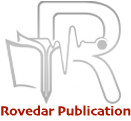Penghua Zhang1,*, Yi Pan2
1School of Foreign Languages, Xidian University, Xi’an, China
2School of Foreign Studies, Xi’an Jiaotong University, Xi’an, China
Abstract:
Introduction:Authors’ self-mentionisunavoidably used in research articles; however, there are still controversial views on their use. The current study aimedto find out what types of self-mentions wereemployed by Chinese and non-Chinesewriters to construct different authorial identities and explorethe similarities and differences.Methodology:A corpus-based comparative analysis was conducted on agricultural research abstracts written by Chinese and non-Chinese writers to compare threetypes of entities using Chi-square and Antconc.Results:It was revealed that abstracts by Chinese writers and non-Chinese ones were significantly different in their use of first-person plural forms and their determiners, research-oriented nouns, and discoursal nouns. Further, it was shown that different authorial identities as a researcher, discourse constructor, and arguer were constructed by human entities and inanimate entities with some preferred main verbs in specific tenses and voices.Conclusion: The present study showed that Chinese writers differed significantly from international writers in using self-mentions and authorial identities due to different views on personal involvement, pragmatic considerations, cultural background, and writing environment. It was also found that personal involvement coexists with the impersonality of the abstract in using self-mentions in abstract writing. The current study can be conducive to abstract writing for novice writers and second language learners in choosing different self-mentions to construct different authorial identities.
1. Introduction:
Abstracts, as independent discourses, serve as stepping-stones for further reading the whole paper. They are traditionally considered impersonal; thus, such writing should avoid using self-mentions. However, various papers on academic writing over the last few decades suggest that academic writing should not be considered impersonal or completely objective. Although the conflicting view on impersonality or objectivity remains, much research has been conducted to reveal that writers interact with their readers, including specialists in a particular field, to highlight their contribution to the field and construct their plausible membership in their disciplines(Hyland, 2005; Swales, 1990). Swales (2004) also believes that research article (RA) writers need to show their authorial identities to highlight their substantial and original contribution to a discipline since RAs are written in a competitive setting. Writers cannot avoid projecting a particular impression of themselves into the discourse to show their relation to their readers, disciplines, and arguments. Abstracts, as a genre of academic writing, certainly reflect the interactions between the reader and the writer, and the debate on the impersonality or objectivity of abstracts has always been a hot issue in academic writing (Martín & León Pérez, 2014).


